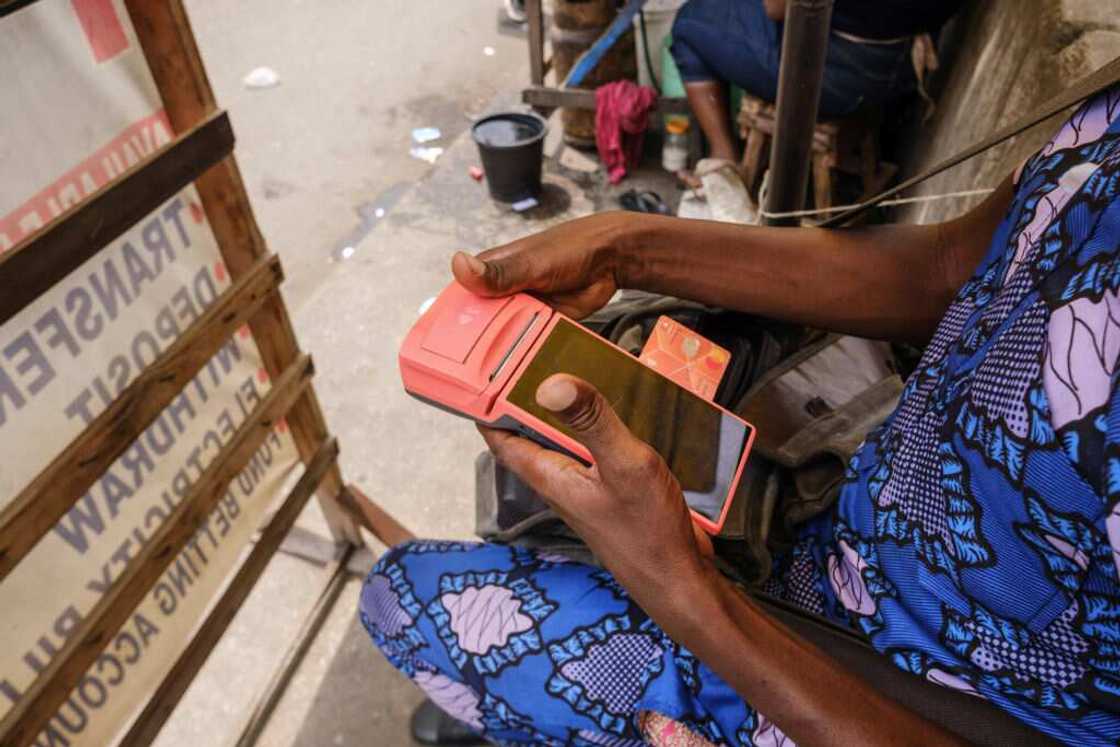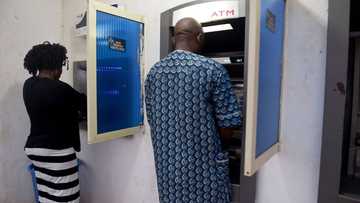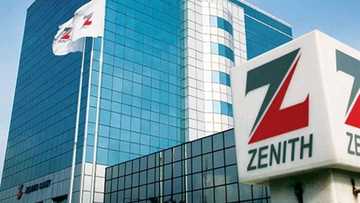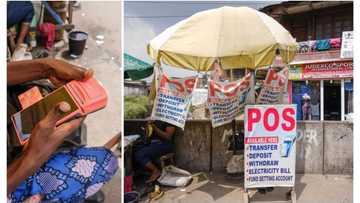PoS Agents Plan N500 Fee For N10,000 Withdrawal in Lagos, Release List For Other States
- Point of Sale (PoS) operators in Lagos has released a new price list for their members
- The operators said that they plan to charge an N500 fee for every N10,000 withdrawal in the state
- The operators said the reason for the release of the list is to curb price differences among its member
Unlock the best of Legit.ng on Pinterest! Subscribe now and get your daily inspiration!
Point of Sale operators in Lagos State will soon start to charge customers N500 for every N10,000 withdrawals.
The development comes after the Association of Mobile Money and Bank Agents in Nigeria, Lagos Chapter, announced a new price list for PoS transactions.

Source: Getty Images
The Association disclosed this on a Channels Television Business Morning programme by its Public Relations Officer in Lagos, Stephen Adeoye.
Operators issue a new price list for withdrawals
Adeoye said the Association's price list is to eliminate price differences in the business.

Read also
"N200k to N10m": CBN to sanction Access, Zenith, and other banks over customers' social media info
PAY ATTENTION: Join Legit.ng Telegram channel! Never miss important updates!
He reeled out the list to include:
N1000 – N2,400 will be N100 for withdrawal. N3500 to N4000 will be N200; N4,100 to N6,400 will be N300; N6,500 to N7,900 will be N400; N8500 to N10,900 will be N500; N11,000 to N14,000 will be N600; N14,500 to N17, 900 will be N700; N18,000 to N2000 will N800 for withdrawal.
Adeoye said:
"Like we said, depending on your location, you can also step it down for people depending on the circumstances. But it should not go more than this."
Price list for other transactions
According to Adeoye, for deposits and transfers, agents can charge N100 for N1,000 to N4,900; N200 for N5000 to N10,900; N300 for N11,000 to N20,900; N400 got N21,000 to N30,900; N500 for N31,000 to N40,000; and N600 for N41,100 to N50,000.
He said the chairman of the Lagos State chapter of the Association, David Abiodun released the new price list recently to excos at a symposium, noting that the list was to stop the activities of agents who are still changing customers high.

Read also
Zenith Bank breaks records, becomes first bank to Hit N1 trillion in market valuation, joins MTN, others
He said:
"We agreed that depending on one's area, they can lower the charges. But it should exceed these new charges. This is why we expect everyone to paste it in their locations so customers can see it."
To enforce the new price list, Adeoye said the associations PRO would leverage its relationship with the police and a task force in their arrears of operations.
Per Adeoye, the Association has a good relationship with the Lagos State Police Command, Police Force, and all DPOs in the state.
Association moves to issue certificates to member, other states adopt new prices
He said the Association would issue certificates to registered members as they collaborate well with the Central Bank of Nigeria (CBN) in Lagos and Abuja.
Finding by Legit.ng reveal that other states in Nigeria have since adopted new prices for transactions since the cash crisis hit early this year.
Operators in the South East have been charging between N500 and above for every N10,000 and N300 for withdrawals and transfers.

Read also
POS operators announce new charges for customers' deposit, withdrawal, expect Nigerians to adjust
Michael Onyeze, an operator in Onitsha's Main Market, told Legit.ng via the telephone that the charges were hiked when CBN began the naira redesign policy.
"We have been charging N500 per N10,000 withdrawal since the cash scarcity. Although, some areas charge higher. For instance, village operators charge as high as N700 for N10,000 withdrawals."
POS operators announce new charges for customers deposit, withdrawal, expect Nigerians to adjust
Legit.ng reported that the Association of Mobile Money and Bank Agents in Nigeria (AMMAN), Lagos State Chapter, had released a unified price list (charges) for Point of Sales (POS) operations in the State.
The price list was unveiled at the 4th Annual AMMBAN Lagos Symposium themed “the impact of cashless policy on mobile money & agency banking.
Abiodun David, the chairman of AMMBAN Lagos State Chapter, said the new price list is aimed at curbing extortion by POS agents on the general public and reflects the present economic situation in the country.
Source: Legit.ng


